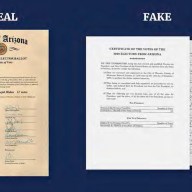At the center of “One Last Thing Before I Go,” the sixth novel from Jonathan Tropper, is a group of underemployed divorcees who spend their days in a poolside purgatory at The Versailles, a motel in upstate New York, doing little more than ogling girls from the local college.
And somehow, the various women in their lives (and, we predict, many of Tropper’s readers) still love them.
“These are men who are feeling the clock ticking on their lives,” the 42-year-old Tropper tells Metro. “[They’re] looking back on the plans they made and retroactively seeing where they went wrong.”
“And I don’t think it’s unique to men,” he continues. “I think it’s middle-aged angst.”
The angst of “One Last Thing,” however, doesn’t take itself too seriously — imagine Jonathan Franzen with fart jokes. The men of The Versailles are, if not happy, content until various emergencies force them to decide how they want to spend the rest of their lives.
Tropper, whose screenplays have attracted the interest of manchild mascot Paul Rudd, spoke to Metro about his generation of late bloomers.
Do you think that men are starting to feel more comfortable talking about their angst?
I do think that we’ve become a little more touchy-feely, but I think that men still feel less able to express that. I think the flip side of that is we live in a society now where people choose not to grow up and where men don’t put away childish things. As a result, men tend to come of age later and very often reluctantly, and that leads to a whole other level of angst that our forebears probably didn’t go through.
Decades ago you finished college or high school and you went to work and you became “a man.” You put on a suit and hat and you went to work. And then we gradually started to keep dressing the same as when we were teenagers and we kept up our hobbies and we played with the same toys, and there were no more delineations of when you became an adult. There’s part of you that never becomes one, and so all these rites of passage start happening later in life, and they kind of take them by surprise.
Has your screenwriting influenced your fiction writing?
I tend to overwrite my screenplays in the first few drafts because I’m used to the room and the breadth of a novel. People say that my books read like screenplays, but they don’t. Not even a little. If they did, it would be much easier to adapt them.
Have you adapted many of your books to screenplays?
I just finished adapting my last book, “This is Where I Leave You,” for Warner Bros., and they’re working on casting that now. I wrote a version of “The Book of Joe” that I’m doing independently with Ed Burns. And I’m raising some money to independently do a movie version of the book “Everything Changes” with Paul Rudd attached to produce and star, so I’m working on it, but they’ve all gone through the studio system and not been made because it’s very hard for studios to get character-driven movies made. But I’m still trying.
Can you see any of your books as a TV series?
Ironically, the series I did [the upcoming HBO/Cinemax series “Banshee”] bears no resemblance to my books. It’s a violent, comical, Cohen-brothery-type of show. I grew up on action movies and action heroes, and I wanted to take my shot at it in a more literary style.
















